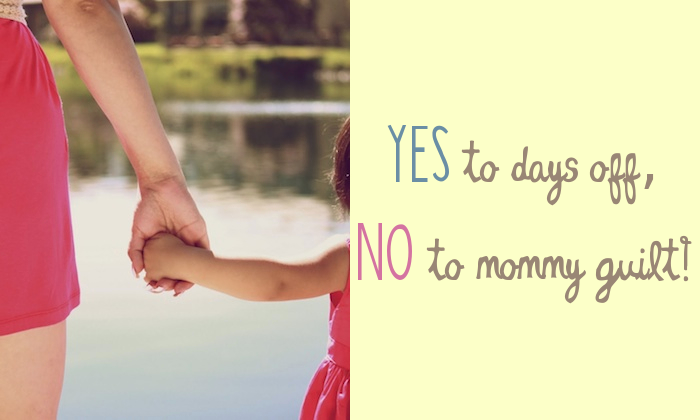
Here’s why we take issue with the controversial “Mums and Maids” ad (and why both mamas and helpers deserve much better)
Happy Friday mamas, who’s ready for a drink? Perhaps you’re reading this on your laptop at home while your baby naps, or on your phone while you wait to pick your kids up from school, or on your office desktop as you take a break from meetings and conference calls. Maybe you’re getting a pedicure, or lying by the pool. Mamas in Singapore live all sorts of lives, and many (myself included) are extremely lucky to have the support of a domestic helper so we can work/volunteer/run errands/leave the house while knowing that our children are being safely cared for.
Perhaps you’ve seen the video (embedded below) that was released yesterday by the immensely admirable organisation Transient Workers Count Too (TWC2). Made in partnership with advertising giant Ogilvy & Mather, the slick short film entitled “Mums and Maids” purports to promote giving helpers their [legally mandated, much-deserved] weekly day off, citing a [frankly appalling] statistic that 40% of Singapore’s 225,500 domestic workers don’t actually receive a day off at their employers’ discretion. Not surprisingly, this can lead to feelings of homesickness, depression and physical exhaustion.
According to TWC2’s press release, the film “seeks to convince employers to give domestic workers their day off by showing that domestic workers’ absence is not an inconvenience, but an opportunity for parents to bond with their children … We at TWC2 hope it will contribute to a constructive re-examination of employers’ relationship with their domestic workers.”
Go ahead and give it a watch, mamas. I’ll wait.
After watching that video, was your initial reaction, “I need to make sure my helper takes her day off so I can properly bond with my child”? Or, like me, was it “Oh God what am I doing my baby isn’t going to recognise me I need to pay closer attention to what she’s eating for breakfast I am a terrible mother”?
My second reaction was, “Wait a minute, why aren’t there any dads in this?” (According to TWC2, “parents” are “represented by mothers for stylistic consistency”; I have no idea what that means).
My third reaction was, “I can’t believe these mums were cool with being made to look so clueless, even coldhearted” (I cringed when I heard one mother ask “but my face will be blurred, right?”). It’s not 100% clear to me that these are real people, and not actors. I couldn’t find any statement about this one way or another in the press materials, or online. I asked TWC2 about this via Twitter, but haven’t received a response. According to the video, 74% of helpers had more correct answers than mothers, but again we don’t know whether it was these exact people, or perhaps just people filling out a questionnaire.
Look, I know that this ad was obviously created to stoke controversy, get people talking, and raise awareness of a very serious problem that absolutely needs addressing. I’m happy to play into their hands by sharing the video; I applaud TWC2 for everything they do to help and give agency to a population that has very few rights and legal availabilities. I fully agree that helpers – like anyone who works in any job, anywhere! – deserve a day off. I kind of can’t believe that I’m publicly taking an organization as admirable as TWC2 to task for something, but… WHY OH WHY, IN THE NAME OF BETTY FRIEDAN AND ALL THAT IS HOLY, MUST THEY ONLY GO AFTER MUMS?!
I’d like to naively think that it’s because women chiefly function as the main employer for helpers, but there’s more to it than that. Is it because they just assume that dads won’t know the intricate details of their kids’ lives (offensive)? Is it because they assume dads are more impervious to guilt? Or that mums will feel guilt, even should feel guilt? Again, to quote one of my favourite working moms (Tina Fey), that is offensive!
The subtext I take away from this video has very little to do with helpers getting a day off. Instead the key message seems to be, “Mothers are too busy with work, or whatever else it is they’re doing that’s less important than their children. They need to stop neglecting their kids and passing the childcare duties off onto someone else.” Yes, I’m being a bit glib, but I am just so offended on behalf of these women who – if they are in fact real parents – are going to be gawked at by the entire country for not knowing their children well enough.
I can’t speak for all mothers; I’m sure there are situations where helpers do play a surrogate parental role, and perhaps the parents need to bond more with their children (I think that’s probably also the case in plenty of families that don’t have helpers). But if that is a problem, it’s surely a problem every day of the week, regardless of whether the helper has time off or not. I’d be the first to acknowledge that my fantastic, hard-working helper has a wonderfully close relationship with my baby — but I’m also secure in the fact that I am my baby’s mother, and I love her and know her deeply. I’m lucky to work from home, so I can be around my baby throughout the day, but many working mums don’t have that luxury. Perhaps they’re not able to pick their kids up from school to ask questions about crushes, or they’re looking after other siblings.
As far as I know, domestic workers were brought to Singapore when women entered the workforce here. Living in Singapore is damn expensive, man, and often requires two parental incomes. This video may not explicitly single out working mothers, but who do you think most feels the weight of its implications?
So, to sum up: giving helpers days off? Good. IMPERATIVE, in fact. Implying that mums over-rely on helpers and don’t know their children well enough? NOT COOL. Every family is different, and we’re all doing our best. I wish TWC2 and Ogilvy & Mather had taken a different approach to this pressing and important problem, rather than vilifying mums.
“We focused the creative strategy on tapping into modern parents’ fear of missing out”, said Eugene Cheong, O&M’s chief creative officer. “By showing how parents are losing out on their relationship with their children by always requiring their domestic worker to be around, we reposition their day off as an opportunity to enhance family bonding. We didn’t want to paralyse the audience with the enormity of an unsolvable problem”.
By playing off mothers’ insecurities, perhaps even stoking feelings of resentment towards helpers, I feel this video simply adds fuel to another fire (in fact, a seemingly unsolvable problem): the unwinnable mommy wars.






 View All
View All




 View All
View All










 View All
View All




